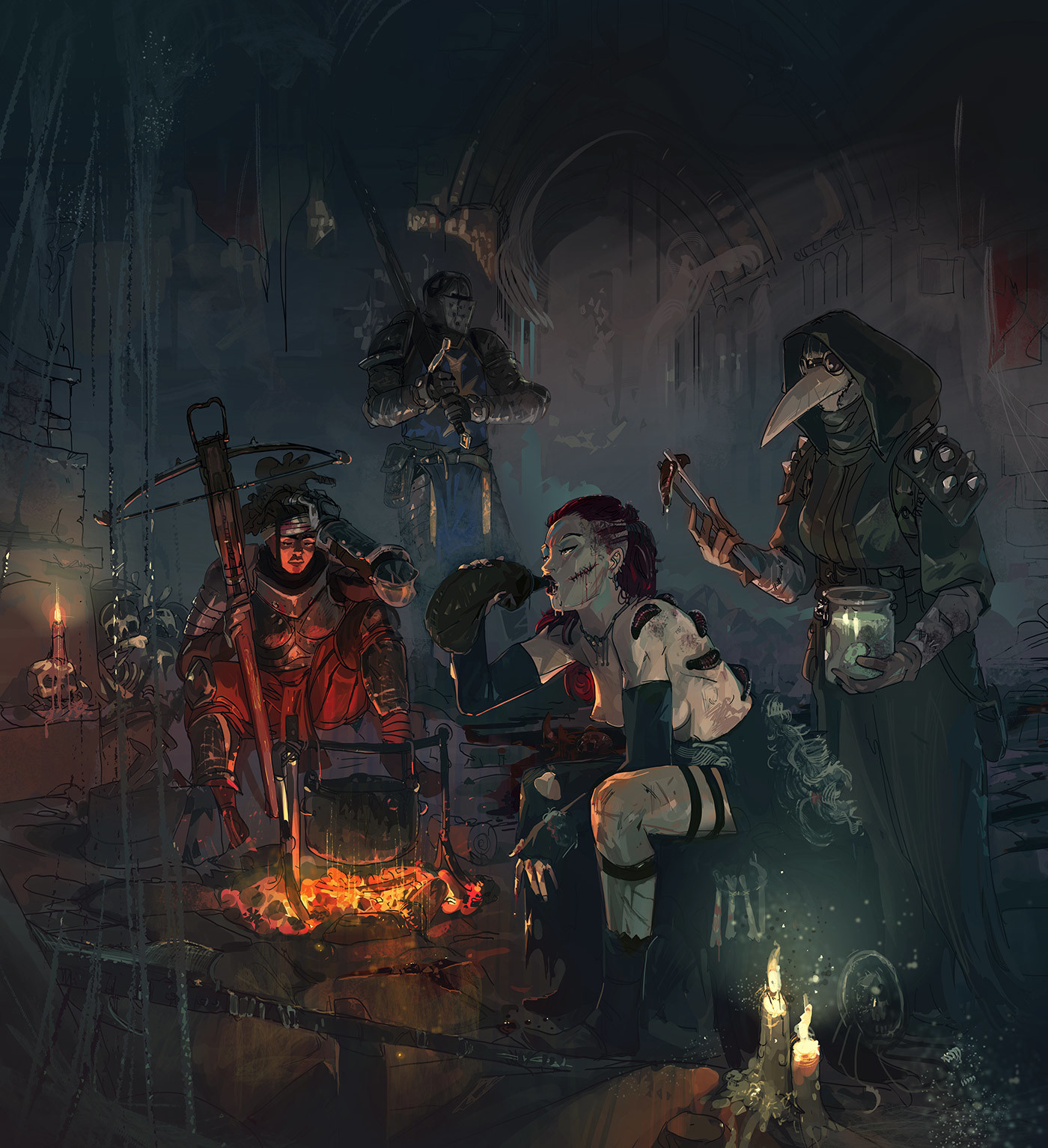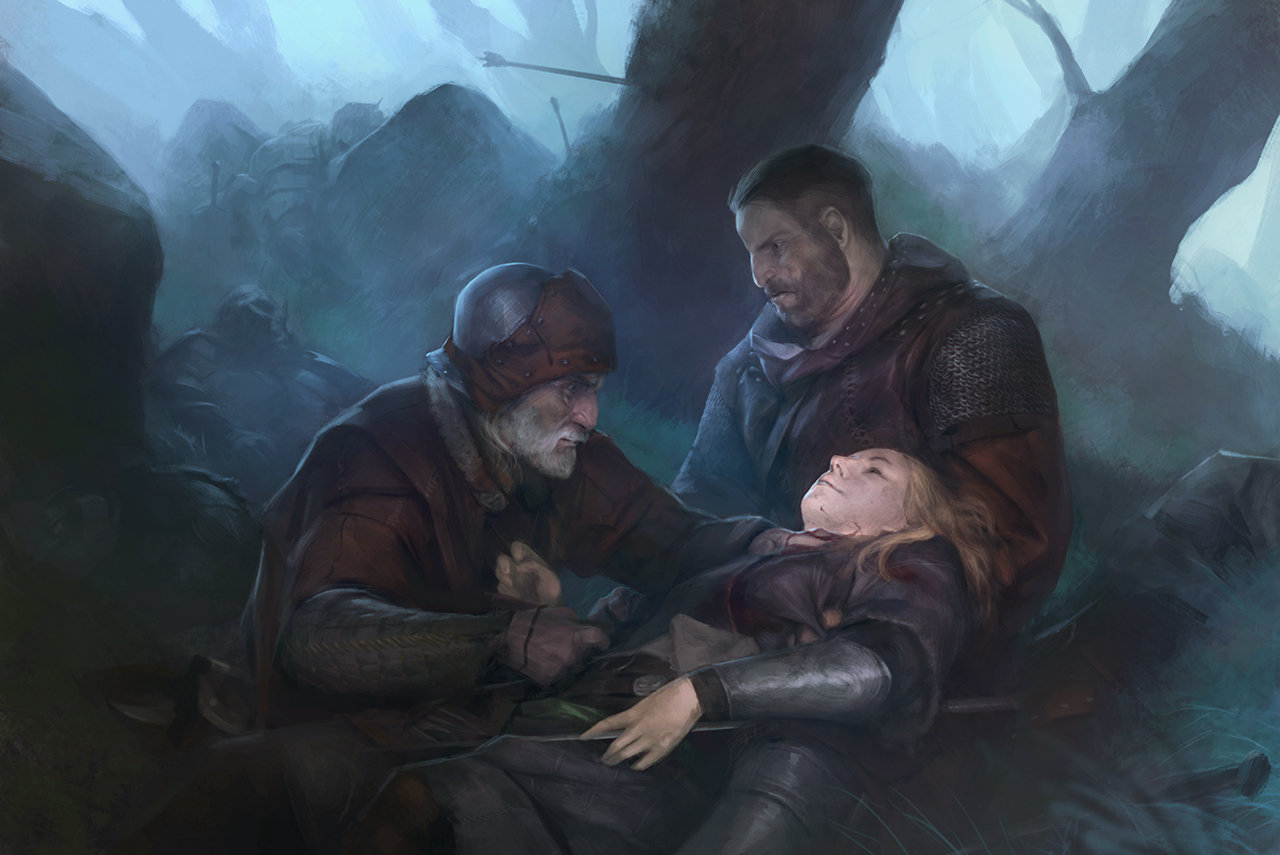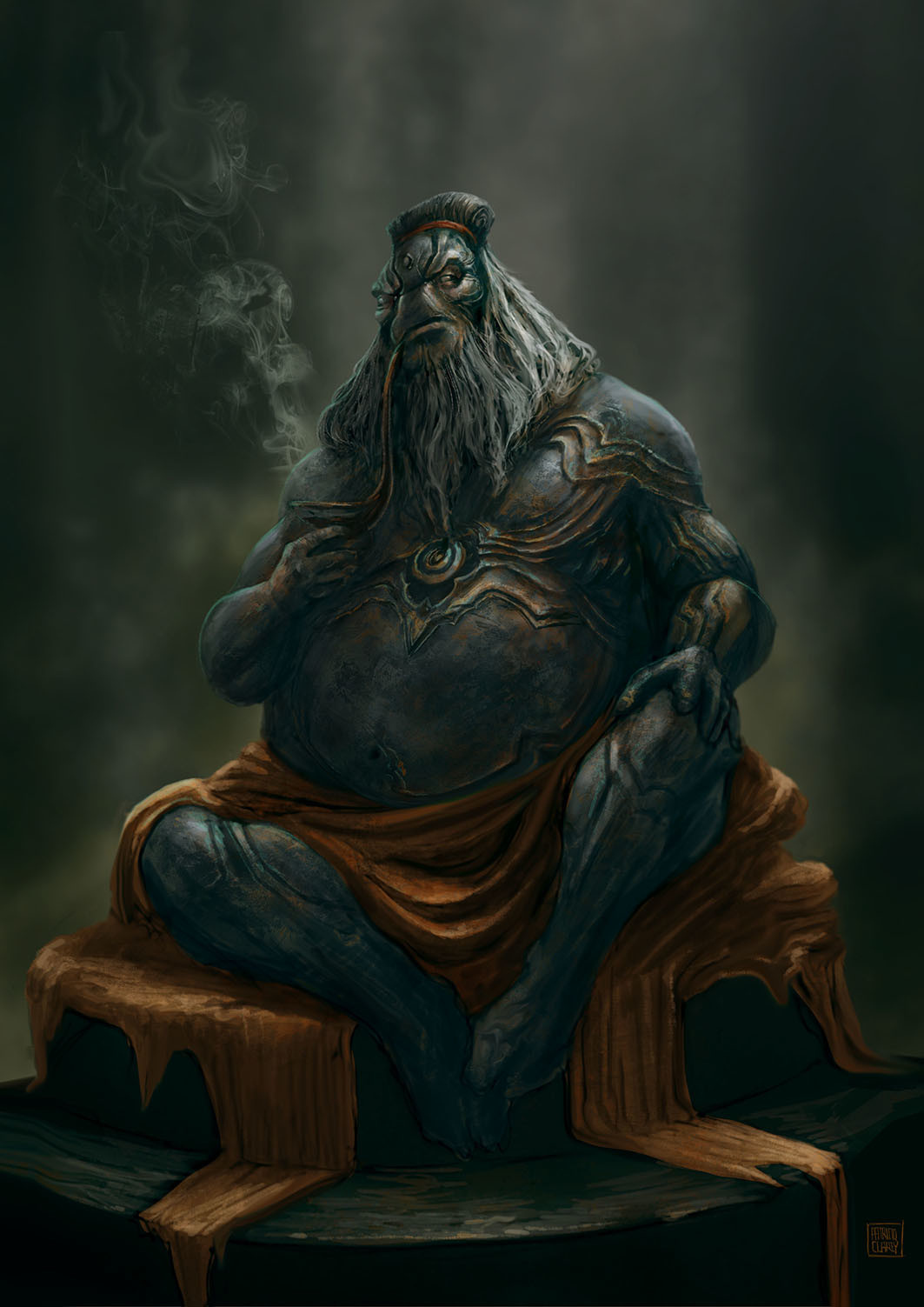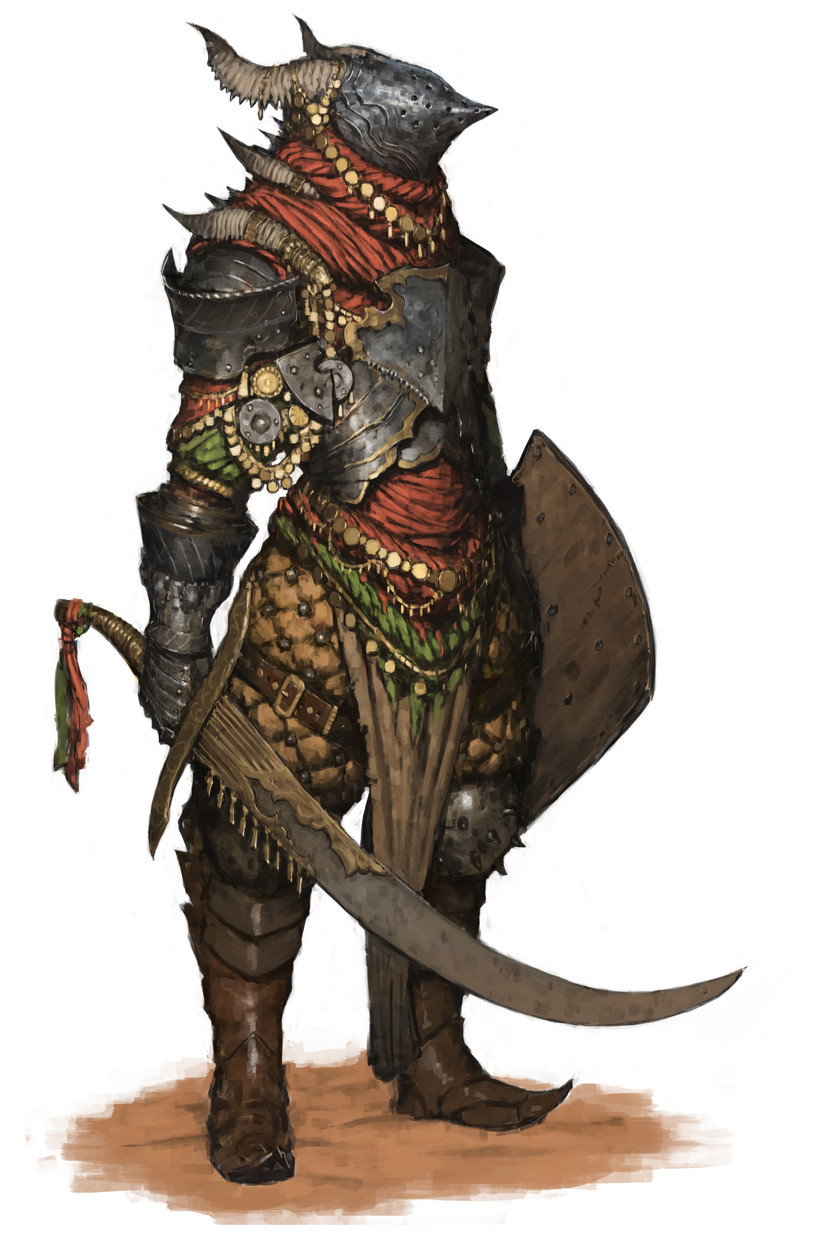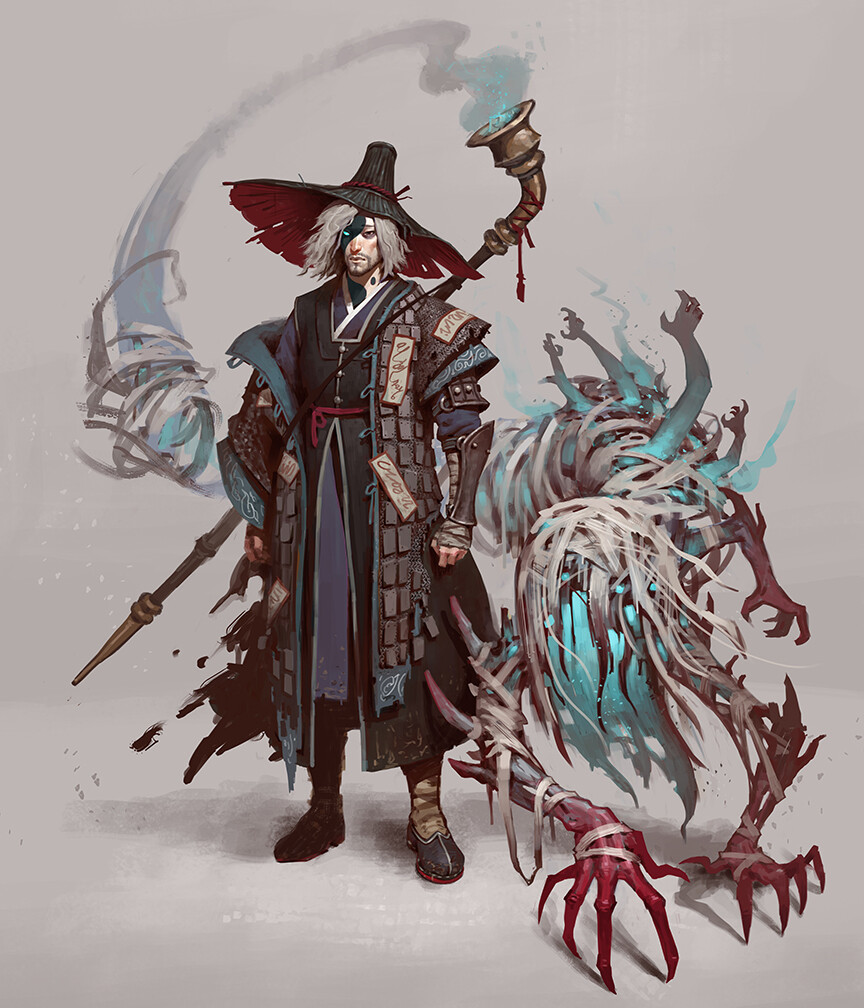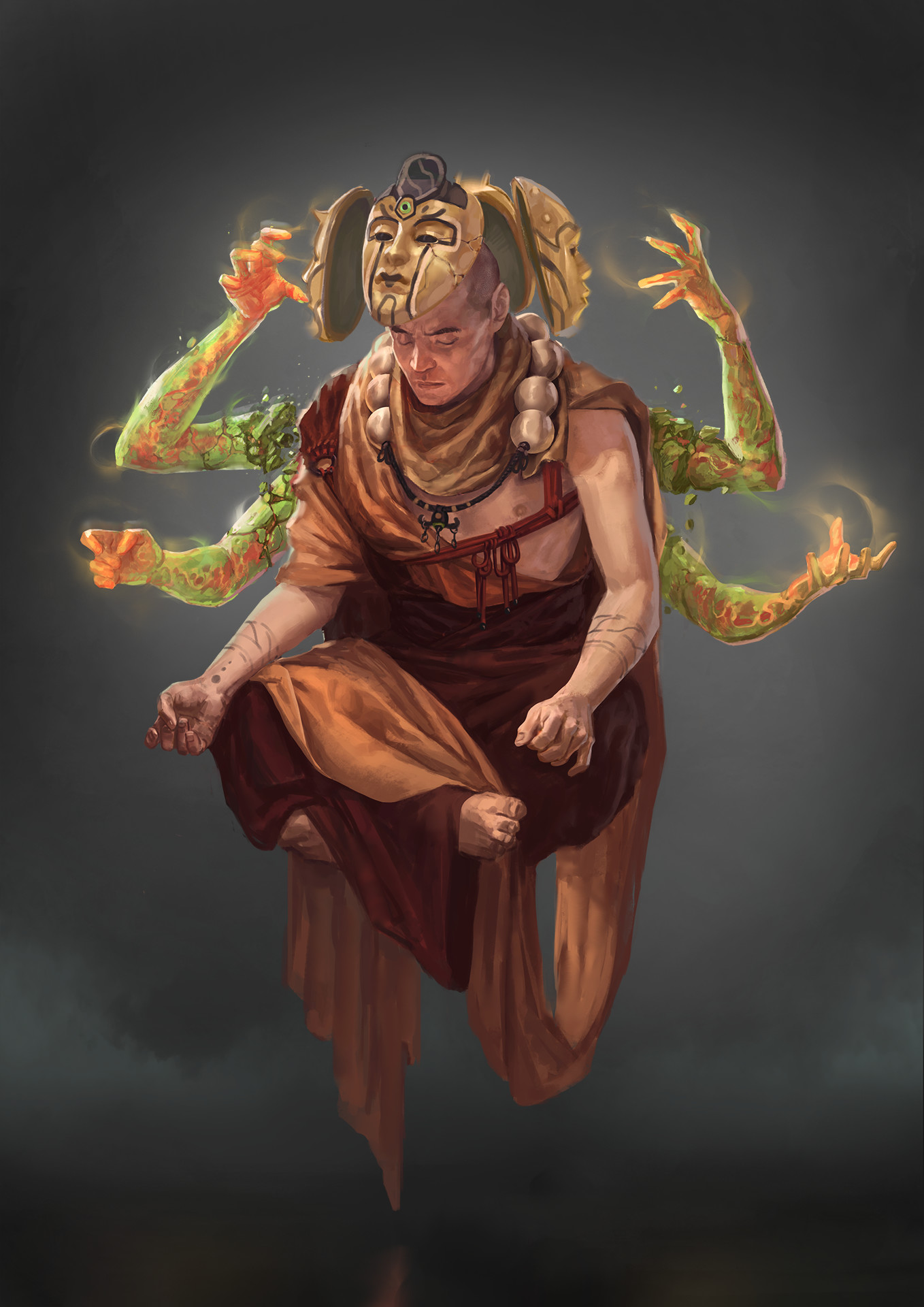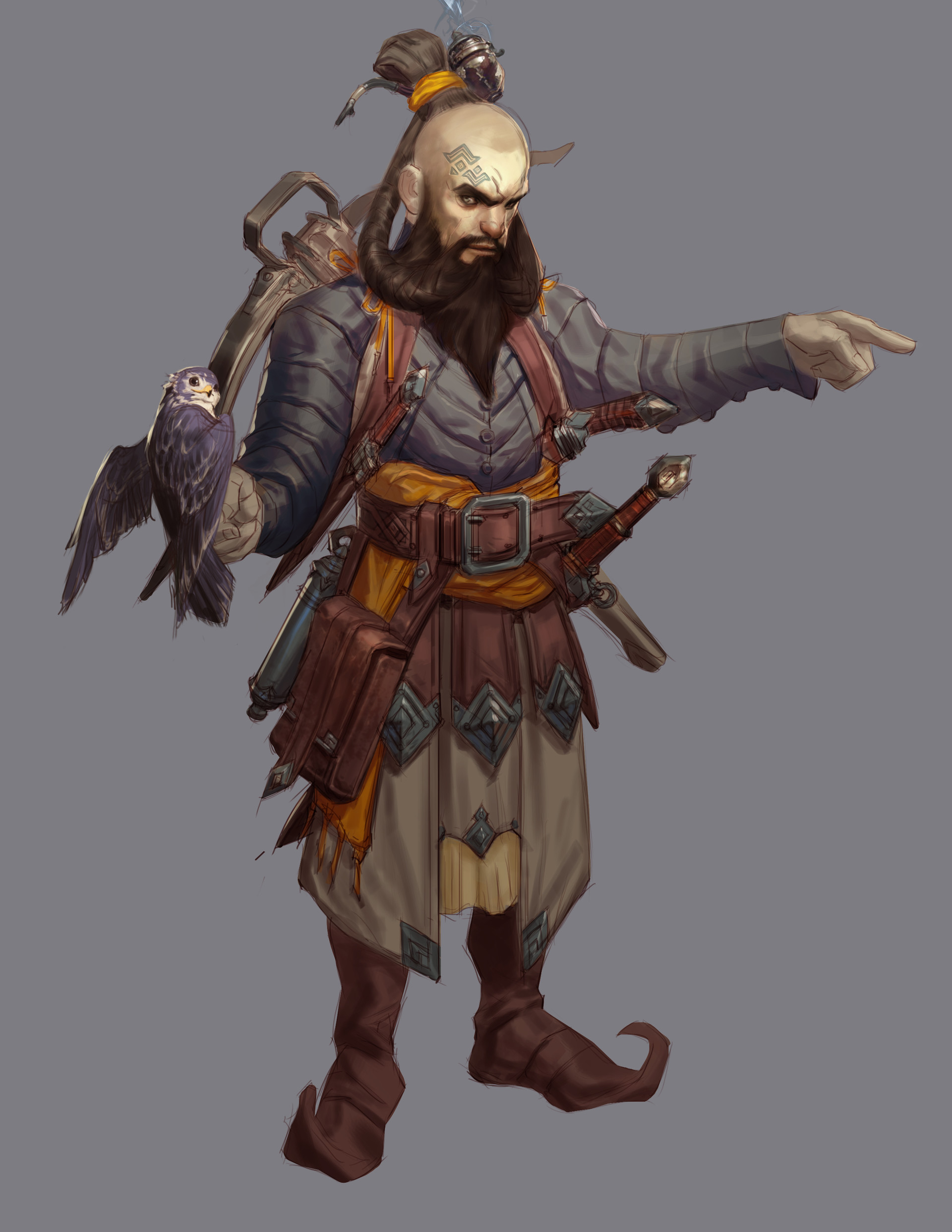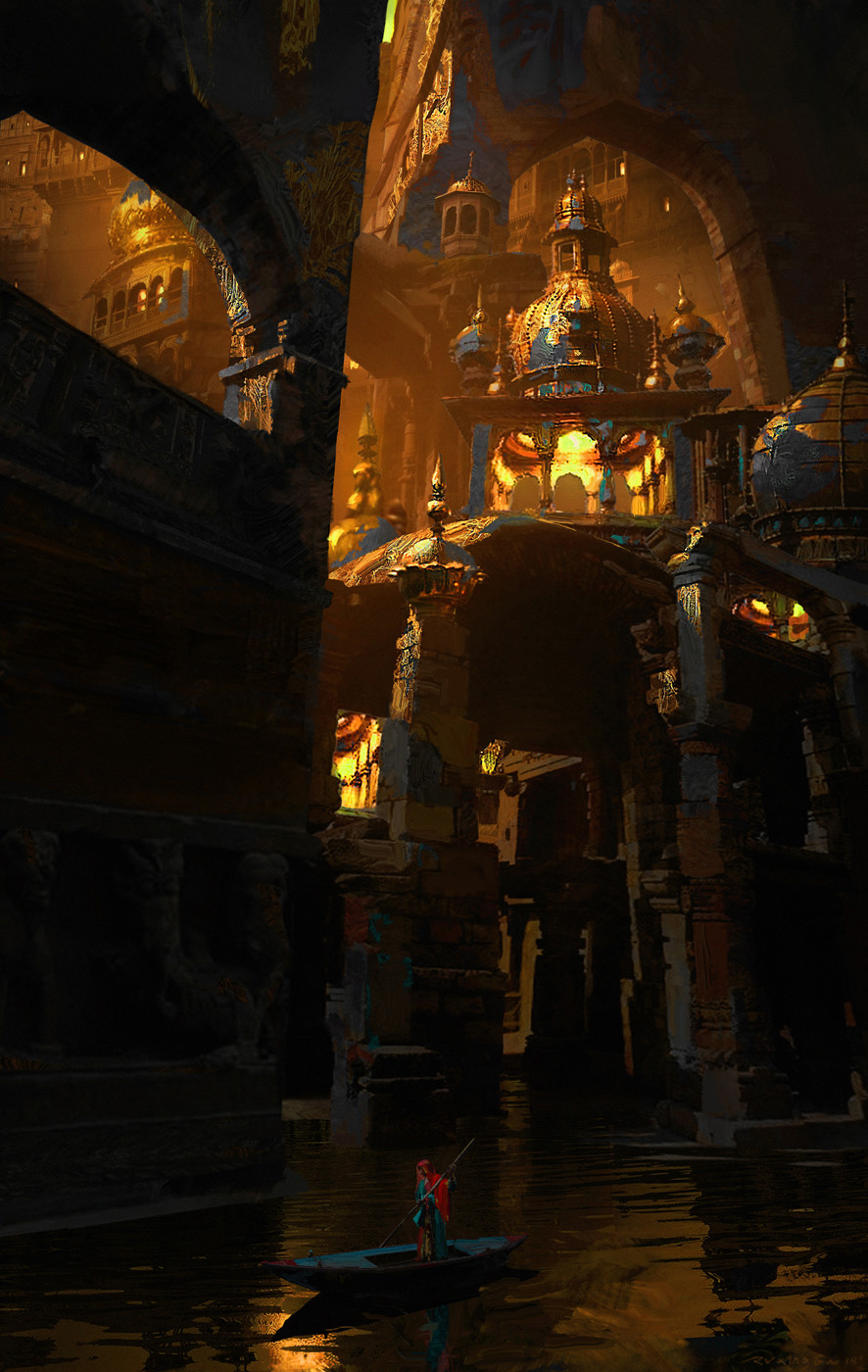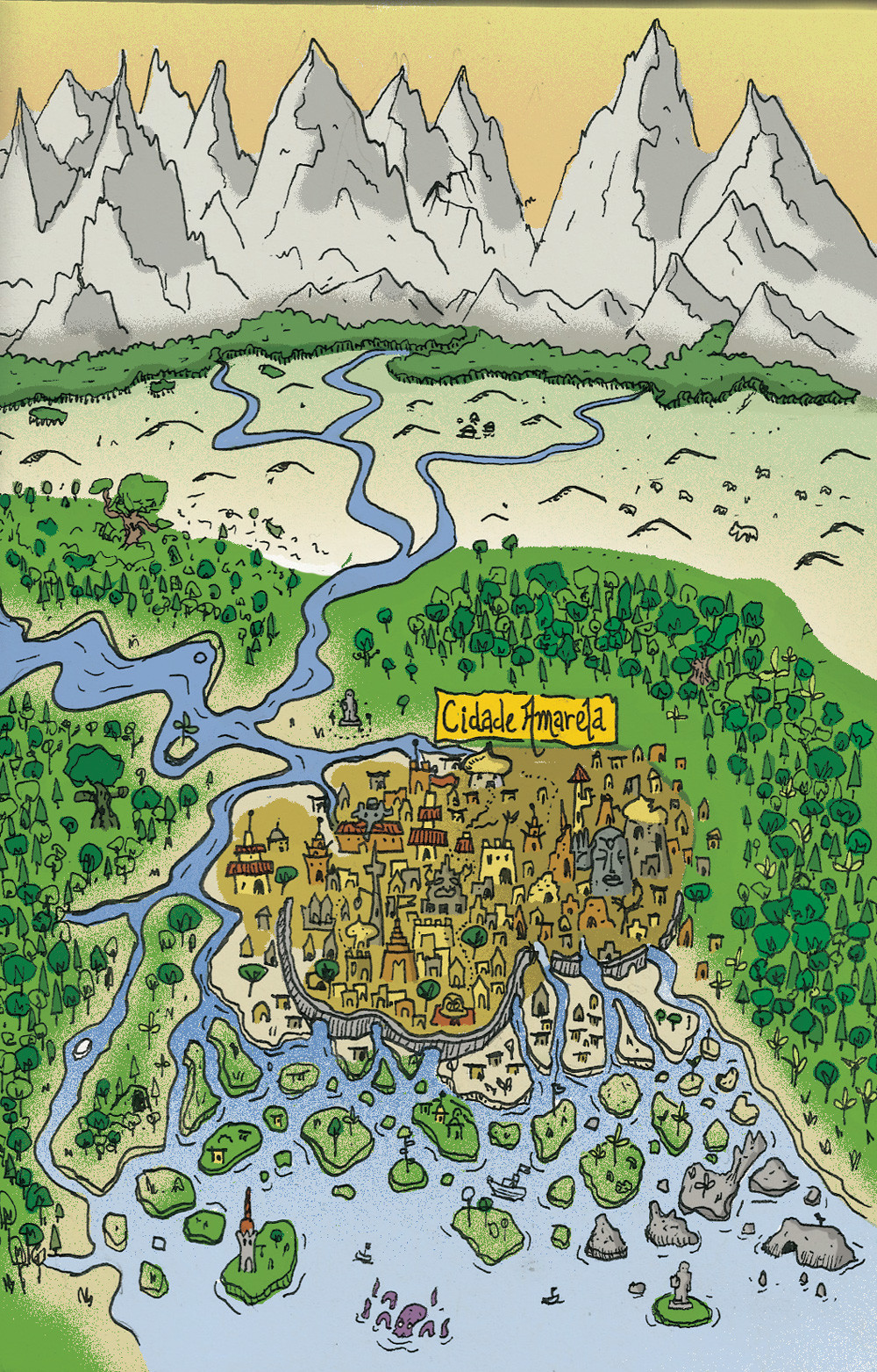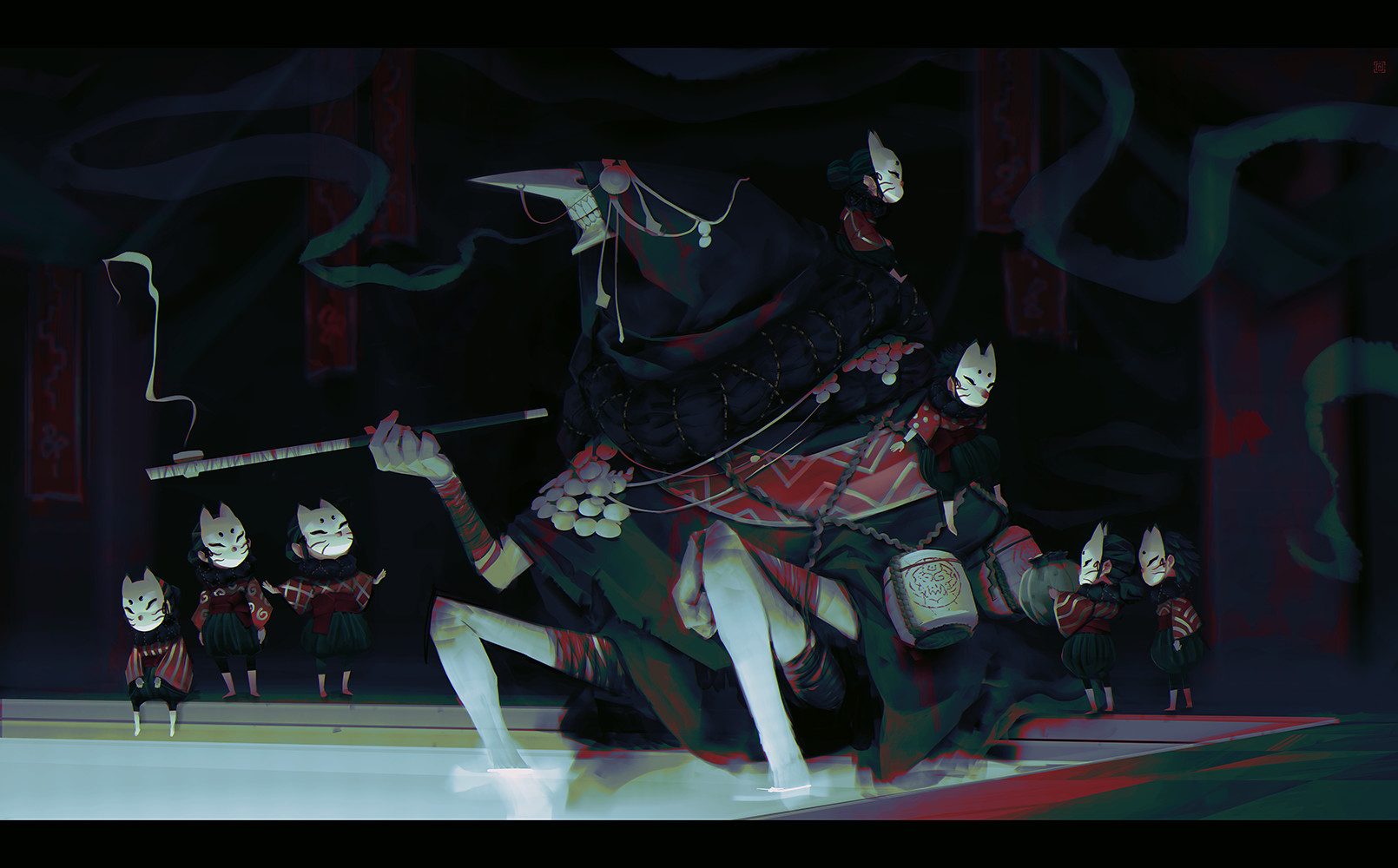I'll be using the following classes in my
Lamentations of the Flame Princess game set in Yoon-Suin:
- Warrior
- Thief
- Magician
- Holy-Man
- Dwarf
- Slug-Man
- Crab-Man
The classes are mostly unchanged in terms of saves and hit dice, but there are some class ability modifications to note down. I've made alterations with a view of having a power curve around 5th level, but this can be expanded if need be.
Warrior
Basic
Hit Die: d8
Minimum HP at 1st level: 8HP
Saves & XP progression: As Fighter
Alignment: Neutral
Special
Combat Skill: Warriors gain +1 to hit per level. Their starting bonus is +2 at 1st level.
Weapon Proficiency: From 2nd level, when gaining a level
warriors gain a proficiency point that they can spend to enhance their
abilities with weapons. The warrior must have killed an enemy with the
type of weapon they want to spend the point on during their previous
level and the proficiencies must be purchased in order in each category:
- Blades
- +1 to hit.
- +1 AC in melee.
- Enemies can only flank you if there are 3 or more of them engaging you.
- Axes
- +1 to hit.
- Triple damage when charging.
- You can damage your weapon on a successful hit to sunder an enemy's armour by 1d4+1 AC.
- Bludgeons
- +1 to hit.
- +1 to damage.
- If you roll max damage on a successful hit then your enemy is stunned and counts as Surprised until the end of the next Round.
- Polearms
- +1 to hit.
- +1 to hit.
- If an enemy moves to engage you in melee you may make an immediate free attack against them.
- Bows
- +1 to hit.
- Range increments increased by 10'
- If
wielding a bow you can attack twice in one round, with a -4 penalty to
hit on the second shot. If wielding a crossbow reloading time is halved.
Combat Master: At 3rd level, warriors increase their critical success range by 1 in combat, meaning that they will inflict a critical hit on a natural 19-20.
Cleave: At 5th level, if a warrior kills an enemy in melee they may immediately make an attack against another adjacent enemy. This ability explodes, so if they kill that enemy they may attack another, and so on.
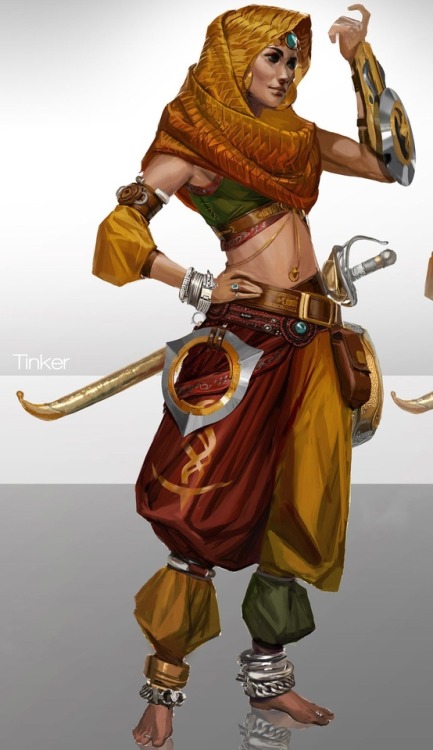 |
| Unknown |
Thief
Basic
Hit Die: d6
Minimum HP at 1st level: 4
Saves & XP progression: As Specialist
Alignment: Neutral
Special
Skill Bonus: When reaching a new level, thieves receive +2 skill points to spend as they wish.
I Know A Guy: Thieves add +2 to their rolls when performing Legwork or Mundane Research downtime activities.
Lucky: At 3rd level a thief may re-roll one roll per day.
Vicious: At 5th level a thief does double damage on a successful backstab.
Magician
Basic
Hit Die: d4
Minimum HP at 1st level: 3
Saves & XP progression: As Magic-User
Alignment: Chaotic
Special
Arcane Magic: Magicians begin play knowing 3 arcane spells and can prepare one spell in their spellbook, per level. Thus a 3rd level magician could have 3 prepared spells. Magicians can cast a prepared spell as an action. When casting they must make a Save vs Magic - if they succeed then they can cast the spell again, if not then it is no longer prepared. Magicians can research one new spell for free when they gain a level, though they much still spend downtime doing so.
Risky Casting: A magician can attempt to cast an unprepared spell. If so they must make a Save vs Magic, with the following modifiers:
- -1 for each HP lost below the magician's max HP.
- -2 for each wound the magician has.
- -1 for each level of Shock, Poison, and/or Disease suffered.
- -1 if the magician suffered damage in the last round.
- -2 if the spell is being cast from memory.
- -1 for each point of Encumbrance.
If the magician passes the Save then the spell takes effect normally. If they fail, they suffer an
Arcane Cascade.
Summon: A magician may attempt to summon an eldritch entity as per the
Summon spell in the
Lamentations of the Flame Princess core rulebook. Prepared spells may be sacrificed to provide bonuses as per
Thaumaturgic Circles and
Sacrifices.
Counterspell: At 3rd level a magician may sacrifice a prepared spell to nullify the effects of a spell cast by an opponent. The magician must Save vs Magic when attempting the counterspell, with the difference between caster levels applied as a positive or negative modifier.
Signature Spell: At 5th level the magician chooses one of their spells. Their level counts as 2 higher for the purposes of spell effects. When rolling to see if they spell remains prepared after casting, they receive a +2 bonus.
Holy-Man
Basic
Hit Die: d6
Minimum HP at 1st level: 4
Saves & XP progression: As Cleric
Alignment: Lawful
Special
Thaumaturgic Vessel: Holy-men begin play knowing 3 divine prayers and can prepare one prayer in their prayer scroll, per level. Thus a 3rd level holy-man could have 3 prepared spells. Holy-men can invoke a prepared spell as an action. When casting they must
make a Save vs Magic - if they succeed then they can invoke the prayer again, if not then it is no longer prepared.
Risky Invocation: A holy-man can attempt to invoke an unprepared prayer. If so they must make a Save vs Magic, with the following modifiers:
- -1 for each HP lost below the holy-man's max HP.
- -2 for each wound the holy-man has.
- -1 for each level of Shock, Poison, and/or Disease suffered.
- -1 if the holy-man suffered damage in the last round.
- -2 if the prayer is being invoked from memory.
- -1 for each point of Encumbrance.
If the holy-man passes the Save then the prayer takes effect normally. If they fail, they suffer an
Thaumaturgic Revelation.
Blessing: A holy-man can create holy water. Around a litre of water must be placed in a site sacred to the holy-man's deity and the holy-man must sacrifice a prepared spell over the water every day for a week, usually during a religious ceremony.
Turn Undead: A holy-man may channel divine power against the undead as per the rules for
Turn Undead in the
Lamentations of the Flame Princess core rulebook. They may perform this a number of times per day equal to their level.
Lay on Hands: At 3rd level, a holy-man may take an action to sacrifice a prepared spell to restore 1d4HP to a target that they are touching. This increases to 1d6 at 5th level.
Divine Favour: From 5th level a holy-man may take an action to sacrifice a prepared spell to grant a target within view +2 to all rolls for 1d6 Rounds.
Dwarf
Basic
Hit Die: d8
Minimum HP at 1st level: 6
Saves & XP progression: As Dwarf
Alignment: Neutral
Special
Halls of the Mountain Kings: Dwarves are naturally at home when underground and have darkvision out to 100'. They can always tell if an underground passage is sloping up or down and are knowledgeable about many aspects of architecture and stonework.
Language: Dwarves can speak, read, and write the language of their hold.
Doom: The holds of the dwarves were destroyed long in the past. According to the elders, your hold was brought to ruin by (d10):
- A plague released from the foul depths of the earth (disease).
- Vengeful spirits returned to destroy the living (undead).
- A civil war between clan leaders (dwarves).
- Otherworldly daemons that clawed their way from the dark (outsiders).
- Golem servants that rebelled against you (automata).
- Treacherous contamination of the hold's drinking water (poison).
- A wyrm from the high mountains who brought ice and snow with them (dragons).
- A cabal of mighty magicians wielding unstoppable sorcery (magicians).
- The herald of a now-dead god (holy-men).
- A terrible curse from a broken taboo (curse).
You gain +2 to rolls when confronting the doom of your hold, i.e. +2 to attacks against outsiders for 4, or +2 to saves vs poison for 6, but if you attempt to flee from the object of your doom you must make a save vs Doom with a -2 penalty - failure means that you stay and fight. Context matters - leaving an otherwise harmless poison spike trap wouldn't trigger a save, but your party fleeing from combat with a poisonous spider might do. If other dwarves find out that you have fled in the face of your doom you will be shunned as a coward (reduced to social rank 2) until you can redeem yourself.
Terrifying Mask: It is customary for dwarves to wear finely made, yet grotesque, masks when not in the private company of dwarves. If a dwarf charges an enemy with a fierce battlecry while wearing their mask, the target must make an immediate morale check or flee in terror.
Plumb the Depths: Dwarves begin play with +1 to their Climbing skill.
Natural Warriors: Dwarves gain an additional +1 bonus to hit at 3rd level, and another +1 bonus at 5th level.
Slug-Man
Basic
Hit Die: d6
Minimum HP at 1st level: 4
Saves & XP progression: As Elf
Alignment: Chaotic
Special
Mollusc: Slug-men do not require a camp fire to regain HP and can drink through their skin. However, alcohol and salt are harmful to slug-men (treat as
holy water).
Language: Slug-men can speak, read and write the slug-man tongue.
Arcane Magic: Slug-men begin play knowing 1 arcane spell and
can prepare one spell in their spellbook, per level. Thus a 3rd level
slug-man could have 3 prepared spells. Slug-men can cast a prepared
spell as an action. When casting they must make a Save vs Magic - if
they succeed then they can cast the spell again, if not then it is no
longer prepared.
Risky Casting: A slug-man can attempt to cast an unprepared spell. If so they must make a Save vs Magic, with the following modifiers:
- -1 for each HP lost below the slug-man's max HP.
- -2 for each wound the slug-man has.
- -1 for each level of Shock, Poison, and/or Disease suffered.
- -1 if the slug-man suffered damage in the last round.
- -2 if the spell is being cast from memory.
- -1 for each point of Encumbrance.
If the slug-man passes the Save then the spell takes effect normally. If they fail, they suffer an
Arcane Cascade.
Masters of the Yellow City: Slug-men can always access all downtime activities, regardless of social ranking.
Decadent: The effects of rare opium and rare tea are twice as potent for slug-men.
Commanding Presence: From 3rd level slug-men gain a +1 modifier to reaction rolls when recruiting and commanding hirelings and henchmen. This increases to +2 at 5th level.
Eyestalks: Slug-men have an excellent field of vision and are harder to catch by surprise (1-in-6 chance instead of (2-in-6).
Crab-Man
Basic
Hit Die: d10
Minimum HP at 1st level: 8
Saves & XP progression: As Halfling
Alignment: Neutral
Special
Crushing Grip: Crab-men can't use weapons, but their mighty claws deal 2d8 + STR damage on a successful hit.
Language: Crab-men can speak the crab-man tongue. There is no written form of this language. They are able to speak the common tongue, albeit haltingly, but can seldom read it.
Slave: Crab-men are enslaved in the Yellow City and cannot increase their social rank past 0. Choose another PC as the crab-man's master when creating the character. Crab-men are still assigned a share of treasure for XP purposes as normal, but this is kept and managed by their owner. Crab-men cannot take part in regular downtime but have access to the following unique activities: enter crab-man wrestling competition, train at crab-man fighting stable, hire out for porter duties, assist your master.
Thick Shell: Crab-men can't wear armour, but their base AC begins at 16. This increases to AC 17 at 3rd level, and to 18 at 5th level.
Clumsy: Crab-men take -4 on all rolls requiring fine manipulation, like reading an inscription or using a vessel.
Powerful: Crab-men take +2 on all rolls requiring brute force, like breaking down a door. Crab-men can carry an additional 6 items past their strength limit before suffering encumbrance.
Combat Instincts: A crab-man's combat bonus increases in line with the warrior. Thus they begin play with a +2 attack bonus, which increases by +1 each level.

